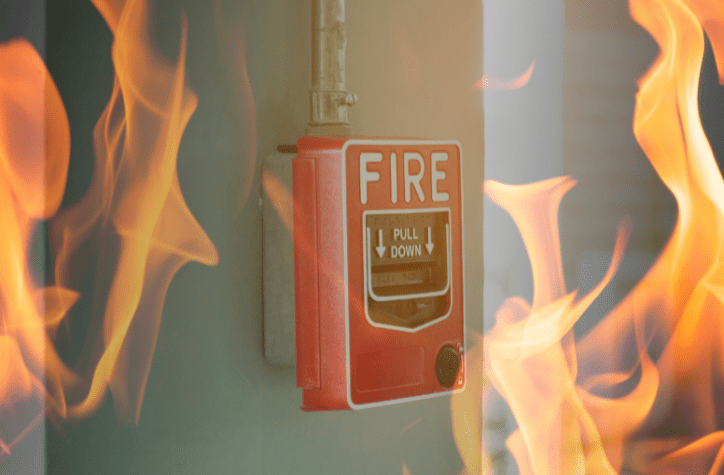My name is Ray Ludvigsen. I am a Hiring Manager at TradeSTAR Inc. with a technical background in commercial alarm installation. I want to share some information that I believe will be helpful to up and coming career seekers with little to no work experience, no college degree, and a limited budget for learning.
As a hiring manager for some of the largest technology integrators in the country for the past seven years, I have shared this same information with countless career seekers. My goal now is to reach a wider audience with the message that a lucrative career is attainable without a huge financial investment in continuing education.
What I am about to share isn’t the only path to a successful career. There are many roads to success and a variety of methods to start a career. This is just one way you can start on a path in the Life Safety industry that provides opportunities in an in-demand field with a minimal investment. In fact, you can start a career as a Life Safety Professional for less than the cost of an iPad.
Qualify Your Technical Skills and Keep Your Arm and Leg!
College courses and degrees can cost an “arm and a leg”. Luckily, gaining competency in order to start a career in the Life Safety industry doesn’t have to be so expensive. One of the first things you can do to gain knowledge necessary for your success in the life safety industry is to study for your state of Texas Fire Alarm License (FAL) exam. Technical college certification courses can cost around 15 to 25 thousand dollars. Degrees from a university can cost much more. Both required Fire Alarm License exams currently cost around $140 dollars combined and study materials are free.
There are expensive study materials you can buy but, if you are on a budget, you can download a free app called Quizlet and search TFM 11 & TFM 12 exams to review free study material. Likewise, on the State of Texas Department of Insurance website you can access the state of Texas Fire Alarm Statute & Rules for free. This is the material the exams are based on and will be a comprehensive source of information to learn from.
Pass the Exam!
Once you feel confident you’ve mastered the material in the state of Texas Fire Alarm Statute and Rules, you can use the online scheduling tool on the state website to schedule a time to take these exams in person. You can also use this guide published by the Texas State Fire Marshal’s Office to help navigate licensing requirements, exam requirements, scheduling, and more.
After you pass you exams, you will receive your test scores. Acquiring these will do two things for you.
- By studying for and achieving a passing grade, you are gaining academic exposure to technical skills you will use in the field.
- You will demonstrate to potential employers that you are serious about Life Safety as a career.
Typically, an experienced Life Safety Professional will test for their FAL exams within a few months to a few years of starting work with a Life Safety Company. Unlicensed workers are limited in their ability to work on certain parts of a Fire Alarm System in Texas. Acquiring a Fire Alarm License not only provides you with a wealth of knowledge, it also authorizes you to build systems, install equipment, and have access to learning opportunities on the job that you would not have access to otherwise.
No construction Experience, No Problem!
After passing the Fire Alarm Licensing exams, another certification you should consider is the OSHA 10 Construction Safety Course. Completing this OSHA certified course will show you can work safely without risking harm to yourself or others. This certification is especially helpful if you have no prior experience working in construction environments. The OSHA 10 Construction Safety course is offered in person or online through a variety of third party providers like this one and is typically very user friendly. You will watch videos and take short tests much like taking defensive driving online. The online version of the OSHA 10 can be broken into sessions over the course of several days to fit your schedule and takes 10 hours to complete. This course can range from 50 -100 dollars.
Life Safety Professionals don’t always work in construction environments. There are instances, such as the construction of a new building, where it cannot be avoided. Life Safety systems are critical infrastructure and required by law in commercial structures for safety reasons. Because of this, they are implemented and operational throughout the different phases of construction as well as in the completed building . It is almost a certainty you will work on a construction site at some point as a Life Safety Professional and so it is ideal to prepare in advance by acquiring the OSHA 10. Many job sites today are also starting to require this certification. Having it on hand will position you as a prepared professional who is immediately deployable.
Suit Up!
So, you have the technical test scores along with a certification from OSHA showing you are ready to be deploy to a jobsite. At this point you have spent approximately 200 dollars and you’re nearing your budget limit. No worries. The last thing you will need to assemble are basic hand tools and some personal protective equipment (PPE). Many times, career seekers discover that they already have many of the tools and protective equipment in their home. This means they only need to supplement the gear they already have with new purchases.
Some jobsites will require safety boots with a composite or steel toe. You will also need a pair of work gloves. As with anything, there are expensive boots and gloves you can purchase… but a budget conscious shopper will be able to pick up a pair of safety boots and a pair of gloves for around $40 dollars. Don’t worry about a hard hat, safety glasses, safety vest, and other types of PPE. Your employer will provide these for free as required by law. If they don’t, you should consider that a huge red flag and keep looking.
To assemble a basic tool kit, you will want to include the following:
- An electrician’s tool pouch or tool bag
- Wire Cutters
- Diagonal cutters
- Needle nose pliers
- Lineman pliers
- Sheet rock saw
- Tape measure
- Torpedo level
- #2 Phillips screw driver
- Flat head screw driver
There are many inexpensive options for acquiring hand tools. Places like pawn shops, father’s day/black Friday sales, and discount stores like Harbor Freight or Northern Tool are great ways to find cheap tools. Eventually, you’ll want to add to your kit by purchasing a drill and additional hand tools but starting out you’ll likely want to take a more economical approach. You should be able to pick up your PPE and tools combined for under 100 dollars. If you already have some or all of them, then you will assemble your kit for much less.
Ready? Set?… Where do you go?!?
You’ve taken all the steps and you’re ready to get to work so… start applying!! You will walk into an interview with your OSHA 10 certification and FAL exam results and make an immediate impression. Have your tools in your vehicle when you interview so, if you are hired on the spot, your new employer can do a tool check right then.
Equipping yourself with the things mentioned in this article will dramatically increase your chances of being hired by a Life Safety company. Your opportunities are limitless within the Life Safety vertical after you are hired. You’ll spend some time mastering the technical aspects of the trade and then you may decide to become a Lead Technician, a Project Manager, an Inspector, a Designer, Operations or Service Manager, Estimator, or even a Sales Engineer. Once hired, many Life Safety Companies will pay for continuing education as well. It is not uncommon to see companies pay for certifications related to the product lines they sell as well as industry specific certifications such as the NICET certifications through the National Institute for Certification in Engineering Technologies.
Need More Help Identifying Opportunities? Call me!
I am passionate about helping people at any stage of their career. What I’ve shared in this article is what I would do in the shoes of a budget conscious career seeker. I suggest you do your own research so you can make informed decisions based on what is best for you. Some of the links in this article are a good starting point.
Now that I’ve shared how to start a career as a Life Safety Professional, if you are struggling to identify opportunities please check our current openings here or visit our main website. You can also reach me directly at rludvigsen@tradestarinc.com, or give me a call at 832-245-5068. Apply with me directly for the fastest path to top Life Safety Contractors and your new career!

We Take Pride In Helping People
If you’re looking for a great new opportunity, please contact us today.

